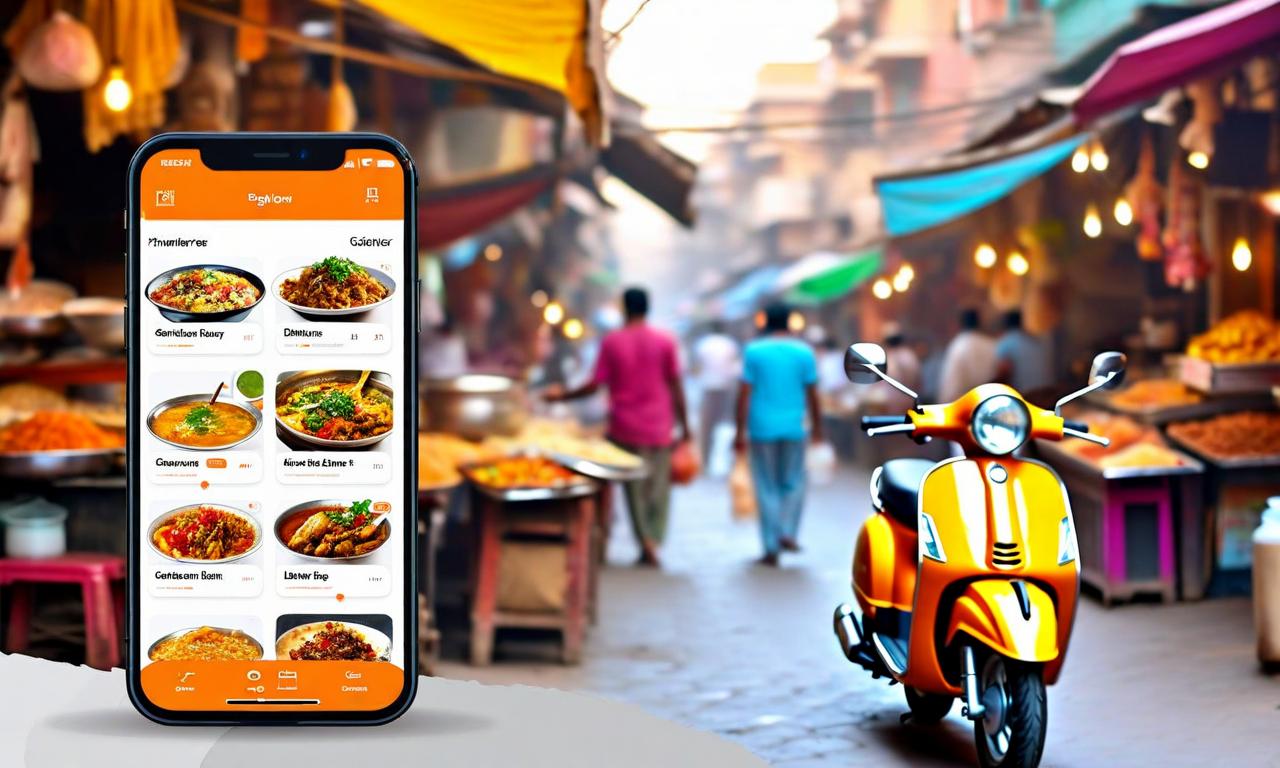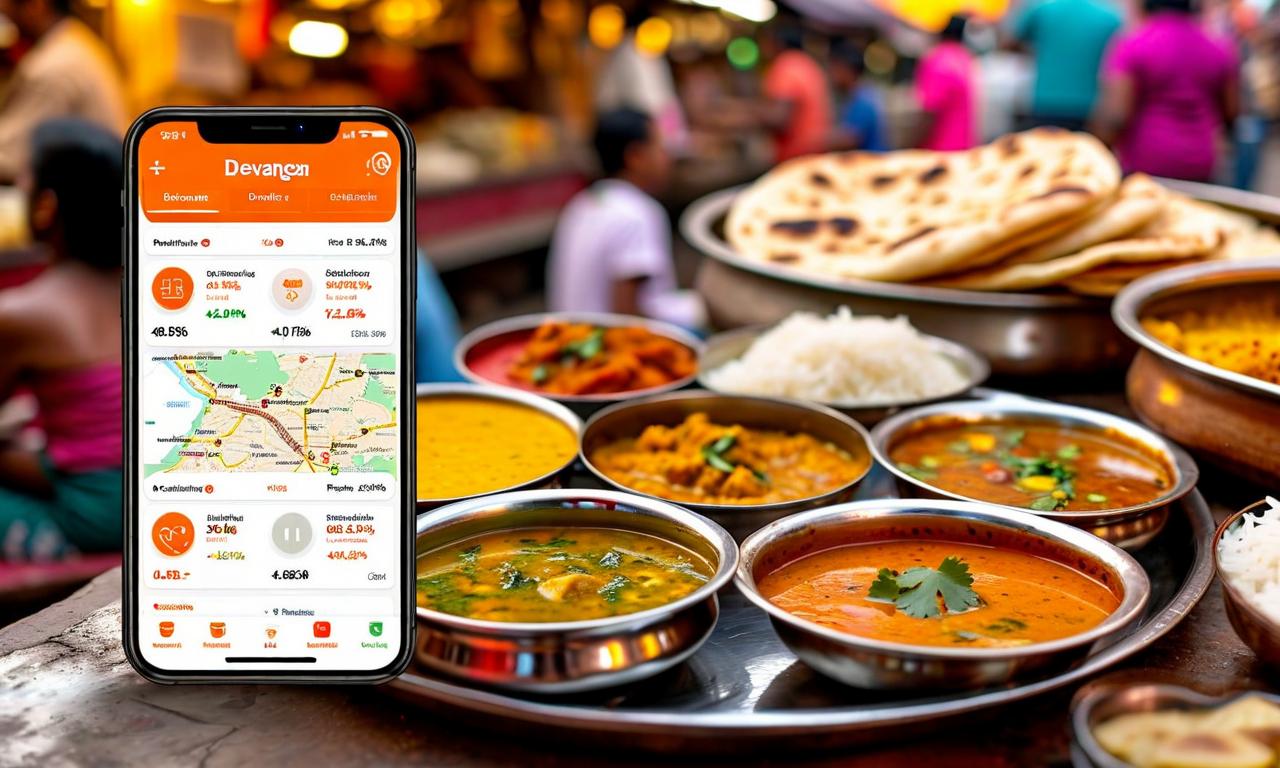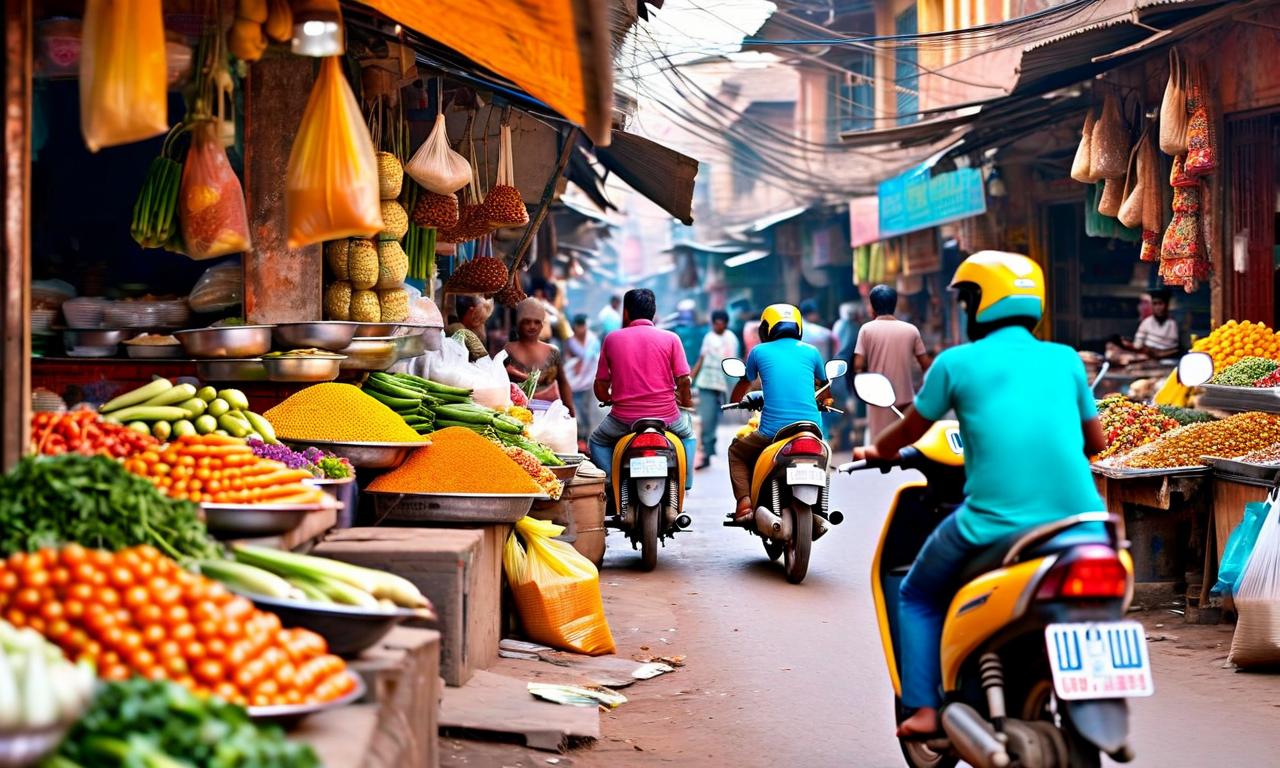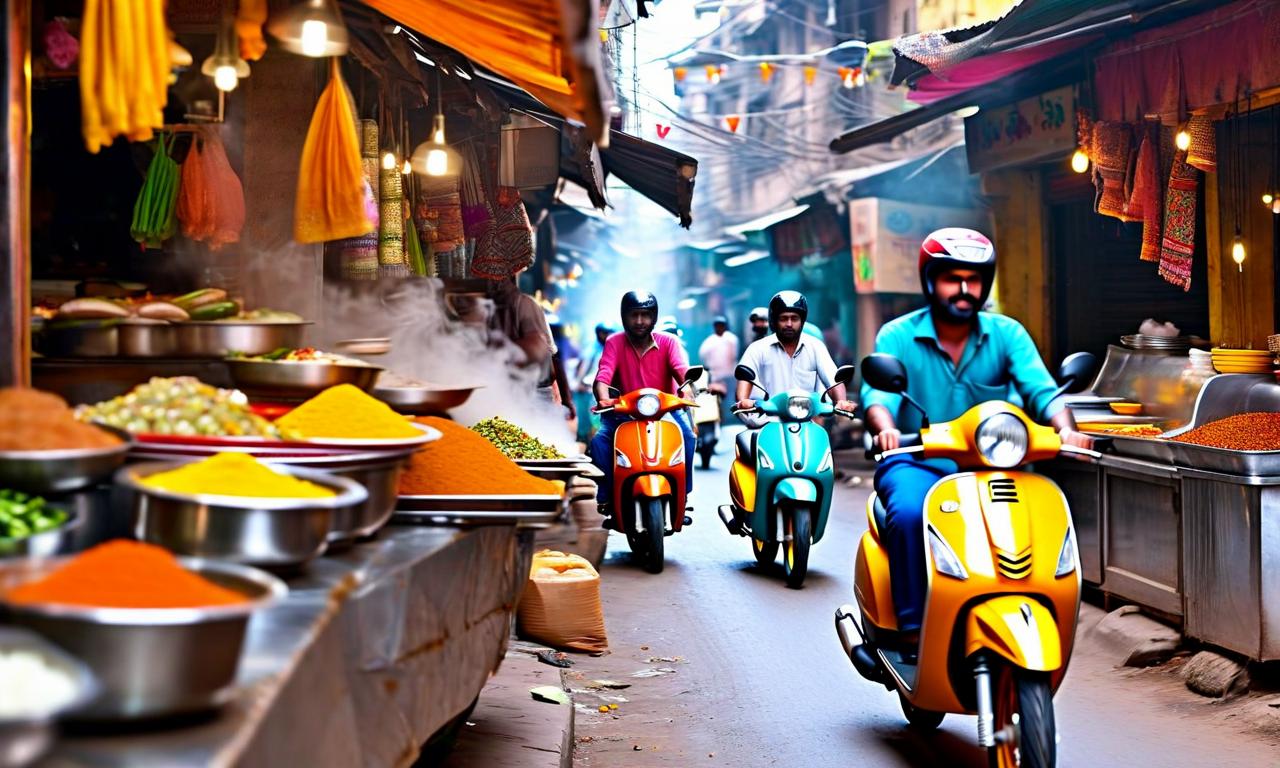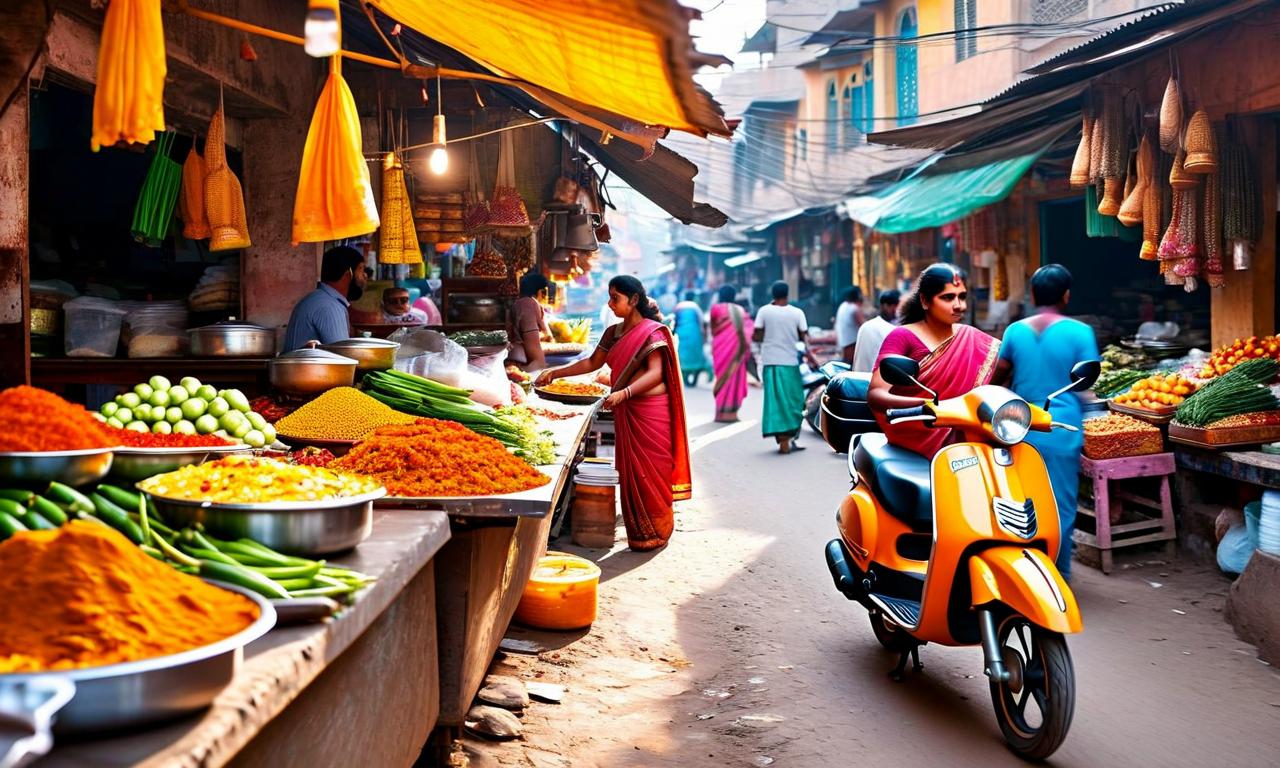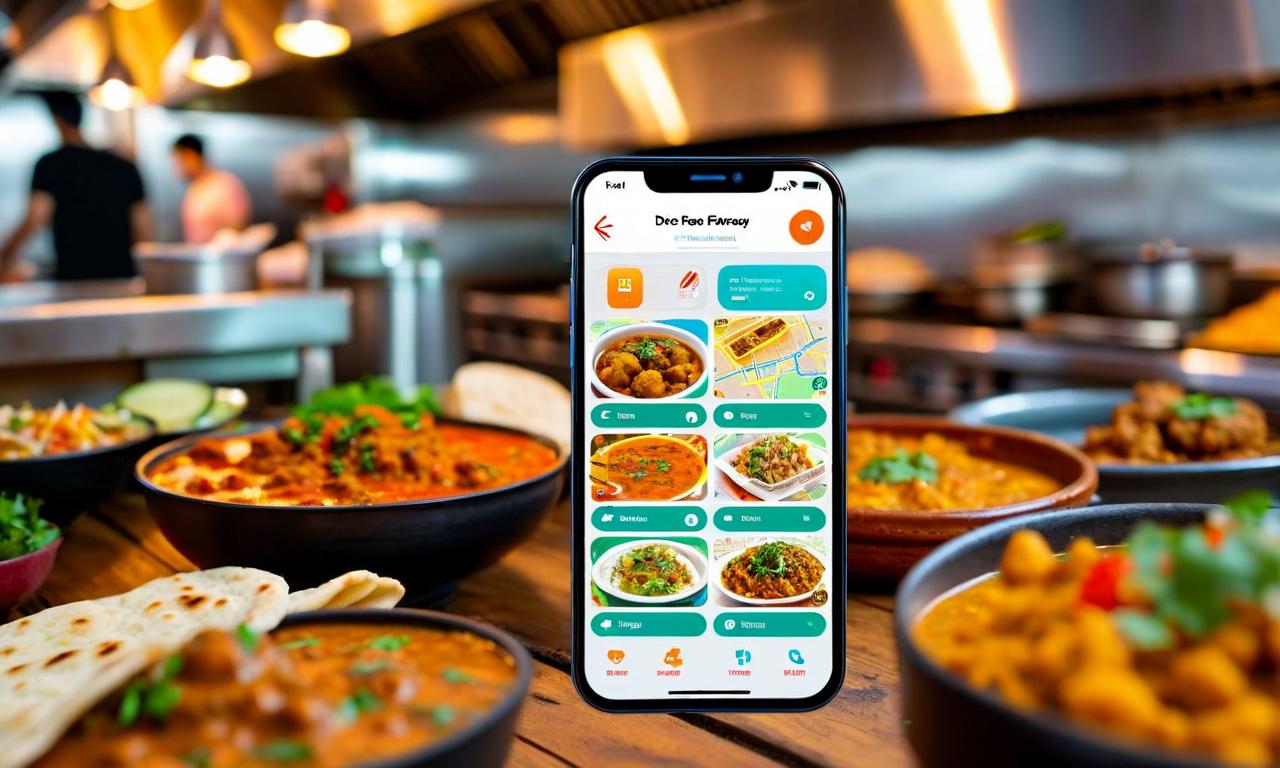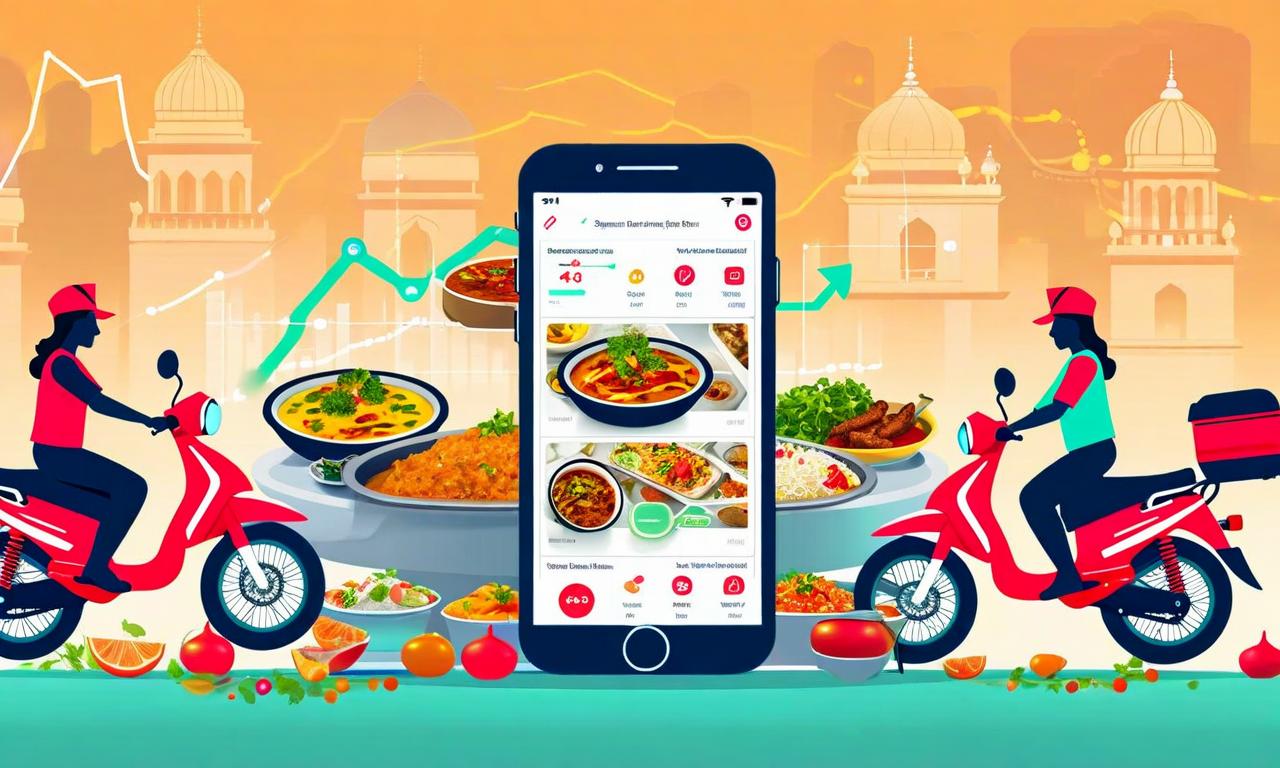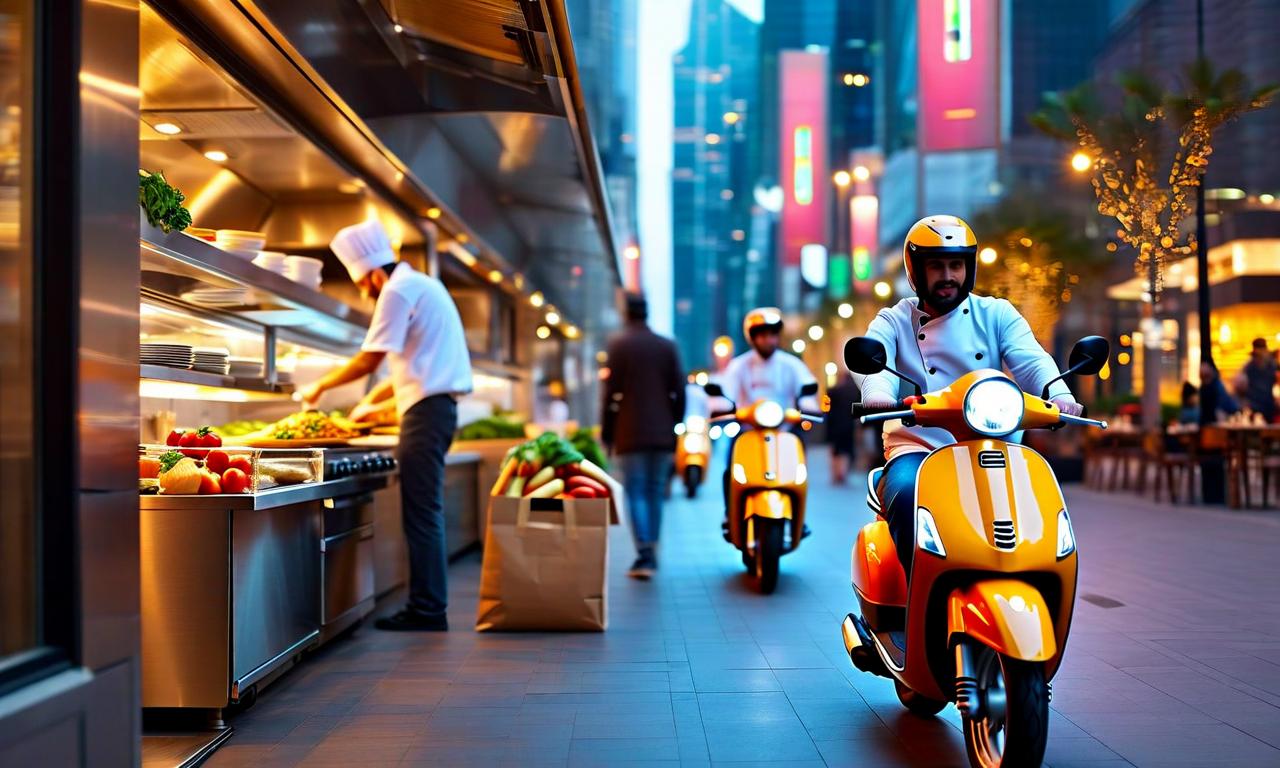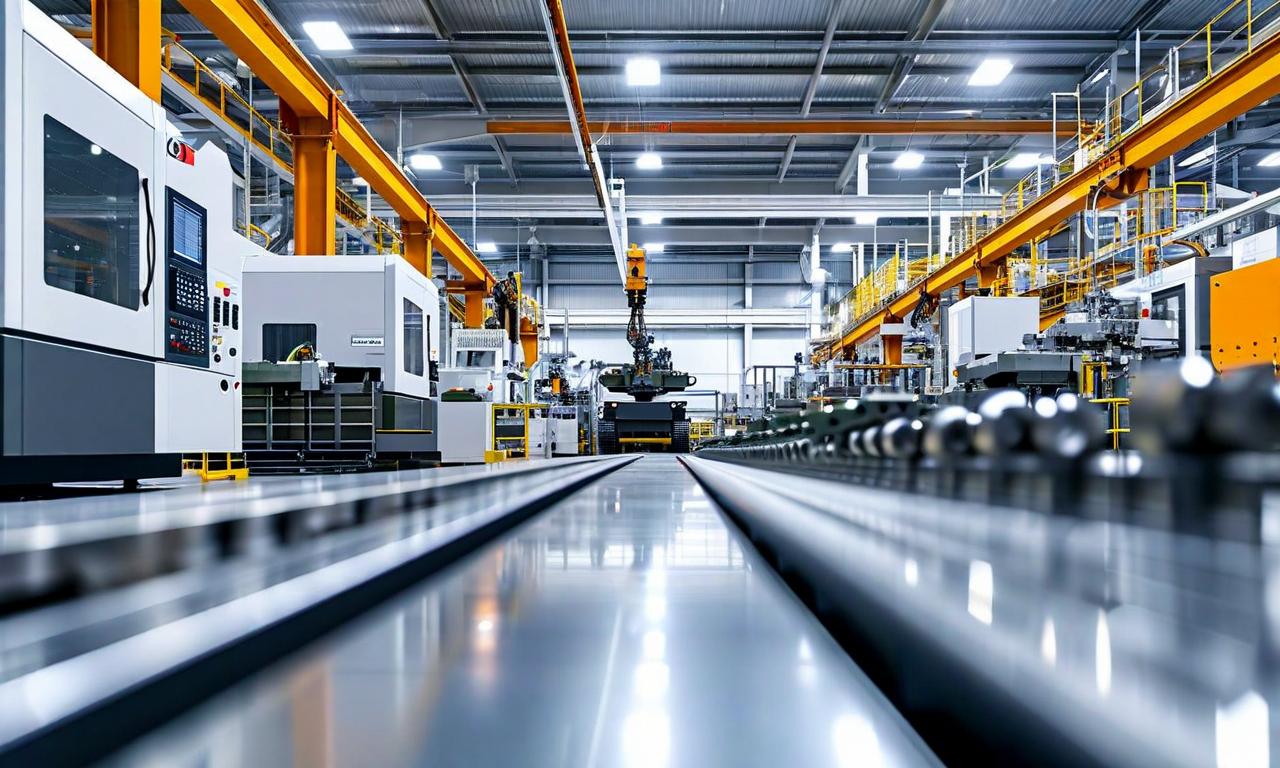Amazon's Quick Commerce Expansion Unlikely to Dethrone Blinkit and Swiggy
Amazon has expanded its 10-minute delivery service, Amazon Now, to Mumbai after successful pilots in Bengaluru and Delhi, operating about 100 dark stores across these cities. Despite 25% month-on-month order growth and increased Prime member engagement, analysts remain skeptical about Amazon's ability to disrupt market leaders. Blinkit and Swiggy maintain significant advantages with 1,544 and 1,062 dark stores respectively, compared to Amazon's 100. Analysts cite execution challenges, first-mover advantages, and established logistics networks as factors favoring incumbents. Blinkit aims for adjusted EBITDA breakeven by Q4 FY26 and targets 2,000 stores by December 2025. Zomato shares rose 1% to Rs 325.00, while Swiggy's valuation increased with shares up 2% to Rs 427.00.

*this image is generated using AI for illustrative purposes only.
Eternal has recently expanded its 10-minute delivery service, Amazon Now, to Mumbai after successful pilot programs in Bengaluru and Delhi. The e-commerce giant now operates approximately 100 dark stores across these three major Indian cities. While the service has shown promising growth with a 25% month-on-month increase in orders and Prime members tripling their shopping frequency after adoption, industry analysts remain skeptical about its potential to disrupt the current market leaders.
Market Dynamics and Analyst Perspectives
Analysts from prominent firms including Emkay, JM Financial, Nomura, and Morgan Stanley believe that incumbent players Blinkit and Swiggy maintain significant advantages in the quick commerce space. The stark difference in scale is evident in the number of dark stores operated by each company:
| Company | Number of Dark Stores |
|---|---|
| Blinkit | 1,544 |
| Swiggy | 1,062 |
| Amazon | 100 |
This substantial lead in infrastructure gives Blinkit and Swiggy a commanding position in the market. Analysts point to several factors that favor the established players:
- Execution challenges for new entrants in the supply chain-heavy business
- First-mover advantages in securing prime real estate locations
- Established logistics networks
Financial Outlook and Targets
The positive outlook for the quick commerce sector is reflected in analyst recommendations:
- Emkay maintains a Buy rating on Zomato (which owns Blinkit) with a target price of Rs 330.00
- Nomura has raised its target for Zomato to Rs 370.00
- Morgan Stanley set an even more optimistic target of Rs 390.00
Blinkit, under Zomato's ownership, is making strides towards profitability. The company is expected to reach adjusted EBITDA breakeven by the fourth quarter of FY26. Additionally, Blinkit has set an ambitious target of expanding its network to 2,000 stores by December 2025, further solidifying its market position.
Stock Performance
The market's confidence in the quick commerce sector is reflected in recent stock movements:
- Zomato shares rose 1% to Rs 325.00, marking a significant 60% increase over the past six months
- Swiggy, while not publicly traded, has seen its valuation rise, with shares gaining 2% to Rs 427.00, representing a 19% increase over six months
Conclusion
While Amazon's entry into the quick commerce space adds a formidable competitor to the mix, analysts believe that Blinkit and Swiggy's established presence and scale will be difficult to overcome in the short term. The quick commerce market in India continues to evolve rapidly, with incumbent players working to strengthen their positions as new entrants like Amazon seek to carve out their share of this fast-growing sector.
Historical Stock Returns for Eternal
| 1 Day | 5 Days | 1 Month | 6 Months | 1 Year | 5 Years |
|---|---|---|---|---|---|
| -2.02% | -9.63% | -5.54% | -13.70% | +21.69% | +115.67% |

